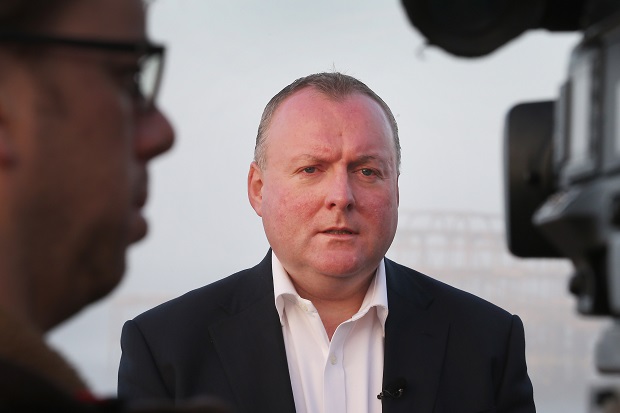Most Coffeehousers are probably profoundly and justifiably cynical about anything masquerading as a consultation exercise in politics, so it might spread a little cheer to see how the Catholic Church goes about it. There’s been a surprising fuss – BBC news coverage; leader in The Times – about Catholic bishops consulting the laity about matters relating to the family. But although it is indeed quite something for the laity to be asked about anything (their views, mind you, aren’t conclusive, so nothing new there) the manner in which the bishops are doing it is fabulously anachronistic, gloriously uncompromising. To put it in context, the bishops are having what’s known as an Extraordinary Synod in September next year to explore issues around the ‘pastoral challenges of the family in the context of evangelisation’. (Think divorce, gay marriage and contraception.) It’ll be followed by a full synod the following year. Meanwhile, local dioceses have until 20 December to consult with the laity on the issues. The entire document that the laity are asked to respond to is 7 pages long. It kicks off with a series of reflections on things like ‘The Plan of God, Creator and Redeemer’. The issues that are troubling the bishops are summed up thus:
‘Concerns which were unheard of until a few years ago have arisen today as a result of different situations, from the widespread practice of cohabitation, which does not lead to marriage, and sometimes even excludes the idea of it, to same-sex unions between persons, who are, not infrequently, permitted to adopt children. The many new situations requiring the Church’s attention and pastoral care include: mixed or inter-religious marriages; the single-parent family; polygamy; marriages with the consequent problem of a dowry, sometimes understood as the purchase price of the woman; the caste system; a culture of non-commitment and a presumption that the marriage bond can be temporary; forms of feminism hostile to the Church; migration and the reformulation of the very concept of the family; relativist pluralism in the conception of marriage; the influence of the media on popular culture in its understanding of marriage and family life; underlying trends of thought in legislative proposals which devalue the idea of permanence and faithfulness in the marriage covenant; an increase in the practice of surrogate motherhood (wombs for hire); and new interpretations of what is considered a human right.’
Yep, that probably captures much of the modern condition when it comes to relationships – and the Church’s global reach is suggested by the references to things like polygamy and caste – but even this overview of contemporary horrors hasn’t quite kept up with developments in contemporary mores: gay couples (including the terrifically fashionable chef, Yotam Ottolenghi, and obviously Elton John) don’t just adopt children; they have them by surrogates too. By the end of three and a half pages, littered with references to Scripture and previous papal encyclicals, the reader then begins the questions, first of which is as follows:
1. The Diffusion of the Teachings on the Family in Sacred Scripture and the Church’s
Magisterium
a) Describe how the Catholic Church’s teachings on the value of the family contained in the Bible, Gaudium et spes, Familiaris consortio and other documents of the post-conciliar Magisterium is understood by people today? What formation is given to our people on the Church’s teaching on family life?
b) In those cases where the Church’s teaching is known, is it accepted fully or are there difficulties in putting it into practice? If so, what are they?
c) How widespread is the Church’s teaching in pastoral programmes at the national, diocesan and parish levels? What catechesis is done on the family?
We then get onto the catchy stuff, like gay marriage and ways of approaching the children of gay couples in a Catholic context, artificial contraception (‘The Openness of the Married Couple to Life’) and the tricky question of whether to give communion to people who are divorced and remarried, ie, who are technically living in adultery.
Now all this sort of stuff is meat and drink to someone like me, but then I’m rather interested in things like Natural Law. But do the bishops really think that this approach is likely to elicit a response from normal Catholics, as opposed to a postcard headed: ‘What do you think of the Church’s take on the following: a) gay marriage; b) artificial contraception; c) divorce; including giving communion to divorced and remarried people? Any other thoughts on the Church and the family?’ Is it too late for the English bishops to call on Damian McBride for advice?
The worrying thing of course is that this is an online survey. One distinguished Catholic journalist observed gloomily that she saw no reason why Stonewall shouldn’t hijack the whole thing by masquerading online as Catholics and responding solely to the bits about gay marriage. In which case, this exercise in consultation may turn out to be rather more interesting than I thought.







Comments